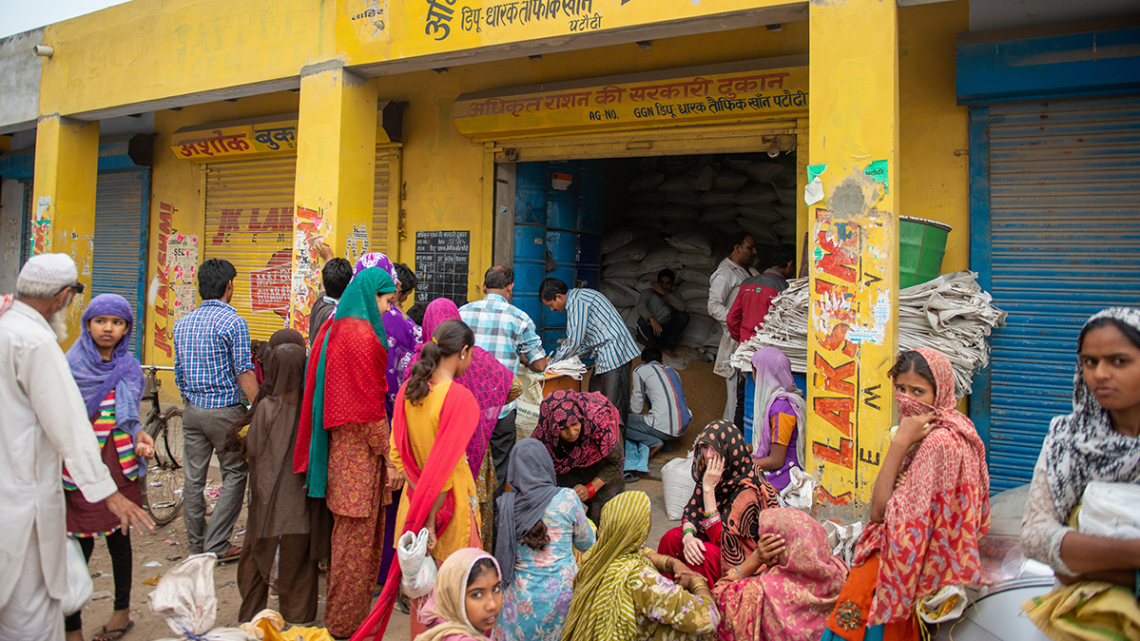
People purchase subsidized grain from a Public Distribution System shop in Haryana, India.
News directly from Cornell's colleges and centers
New Project Will Reveal True Cost of India’s Food Subsidies
By Dan Verderosa
Each year, India spends tens of billions of dollars on the Public Distribution System (PDS), a food subsidy program that helps to ensure the food security of more than 800 million people. The largest such program in the world, the PDS is a monumental achievement for food security. But with high transaction costs and a reliance on resource-intensive crops such as rice and wheat, the actual cost of these subsidies is likely much higher.
A new project from the Tata-Cornell Institute for Agriculture and Nutrition (TCI) aims to estimate the true cost of the PDS by accounting for hidden costs like the health and environmental impacts of the program. The project will also model the costs of PDS alternatives that feature locally sourced grains and more nutritious options.
“The effect of the PDS on impoverished families cannot be overstated, but the truth is that we don’t know the real cost of the program and its impact on the environment, the public health, and more,” said TCI Director Prabhu Pingali. “The price consumers pay for PDS food grain does not account for these ‘hidden’ costs, so policymakers cannot consider the true cost of the food basket when designing food-based safety net programs. This effort will offer evidence to make a vital program even stronger.”
Media Contact
Get Cornell news delivered right to your inbox.
Subscribe
